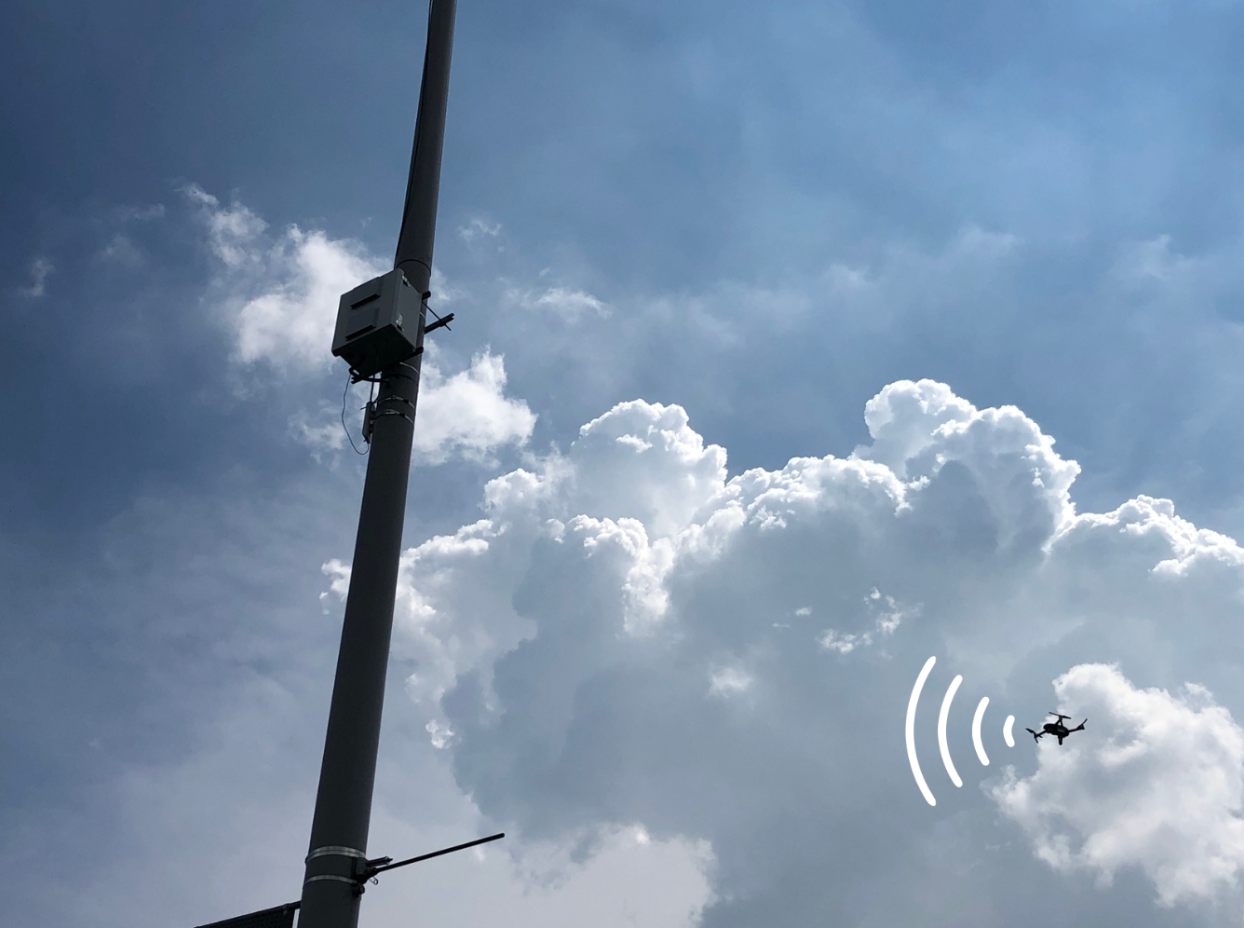In recent developments within the drone industry, drone manufacturer DJI, renowned globally as the largest drone manufacturer, has begun encrypting its Aeroscope Remote Identification broadcasts. This strategic move significantly impacts various drone detection systems, notably affecting systems like Aeroscope, which rely on intercepting once unencrypted DJI broadcasts for functionality.
This encryption implementation marks a significant shift in the dynamics of drone technology and airspace security. Previously, drone detection systems that intercepted DJI signals were instrumental in identifying and monitoring DJI drones, including popular models like the Mavic and Mini series drones. However, DJI's encryption renders many of these systems ineffective in detecting and tracking DJI drone signals. Since the signals are now encrypted, there is no question as to the legality of decrypting them, leaving their systems unusable to detect DJI drones.
DJI Proposes USB Dongle to Reactivate Aeroscopes
DJI recently introduced a USB dongle designed to be inserted into existing Aeroscope drone detection systems, enabling them to detect encrypted DJI drone signals. While this solution appears to restore functionality, it raises complex issues concerning conflicts of interest and potential national security risks, particularly regarding the involvement of the Chinese government. From malware to more extreme scenarios, there are very important reasons to be wary of utilizing USB devices.
DJI's alleged collaborations with the Chinese government and its allies, coupled with its dominant position in the global drone market, raise concerns about the possibility of government access or influence over DJI's encryption and Aeroscope detection systems. The utilization of the USB dongle in an Aeroscope system prompts questions about its integrity and independence, both major red flags for systems that have been used for national security and critical infrastructure protection.
The need for Aeroscope systems to use DJI’s USB dongle also raises the concern over dependence. Aeroscope already depends on DJI as its original manufacture. With the required additional aftermarket hardware, it proves even more just how reliant Aeroscope is on DJI and how susceptible Aeroscope users are to DJI decision making. Since DJI is requiring aftermarket parts for Aeroscope now, what is to say the same won’t be required again in the future.
Additionally, any issues with the USB dongle, whether accidental or deliberate, could render the system ineffective and compromise security in the area.
The implications of DJI's encryption strategy extend beyond technical functionalities to encompass broader geopolitical and security considerations. The risk of malicious software exploiting vulnerabilities in systems in which the USB dongle is inserted, potential data breaches, and compromised airspace security underscores the urgent need for transparent and robust solutions in the drone detection landscape.
For more technical information on Aeroscope systems and how they function, see our blog.
DJI Encryption Effects on Other Drone Detection Systems
What if your system isn’t an Aeroscope and the use of the DJI USB dongle doesn’t apply to you? Are you home free? Definitely not.
The effects of DJI’s drone encryption reaches far beyond only Aeroscope detection systems. Any system that previously took advantage of illegally intercepting DJI’s once-open transmissions must now decrypt and decode the drone/controller signal, which is a more clear wiretap violation and could lead to large fines and jail time. With DJI’s move to encrypting Aeroscope Remote Identification broadcasts of more than 70% of the world’s drone market, systems which rely on signal interception will become ineffective without hacking the signals which is no small feat.
Other systems that rely on physical signal detection methods will maintain their ability to detect DJI and non-DJI drones, regardless of encryption.
Conclusion
DJI's decision to encrypt its drone signals, which claims to enhance privacy and security, and to require Aeroscope users to purchase and utilize DJI’s own aftermarket USB dongle, has triggered significant disruptions in the drone detection ecosystem. This move poses tangible national security risks such as unknowingly installing spyware/malware, interference from foreign parties, possible leaking of classified information from inside the system, and manipulation of detection zones. The encryption also renders many systems unusable that previously relied on intercepting the unencrypted drone signals.
Stay proactive in safeguarding your airspace amidst DJI's encryption of Aeroscope Remote Identification broadcasts. With many existing drone detection systems facing challenges, it's crucial to explore solutions that aren’t affected by DJI’s encryption. By staying informed and taking action, you can avoid the risks associated with DJI's encryption strategy and protect your business and property from potential threats.
Learn more about systems that aren’t affected by DJI encryption.

